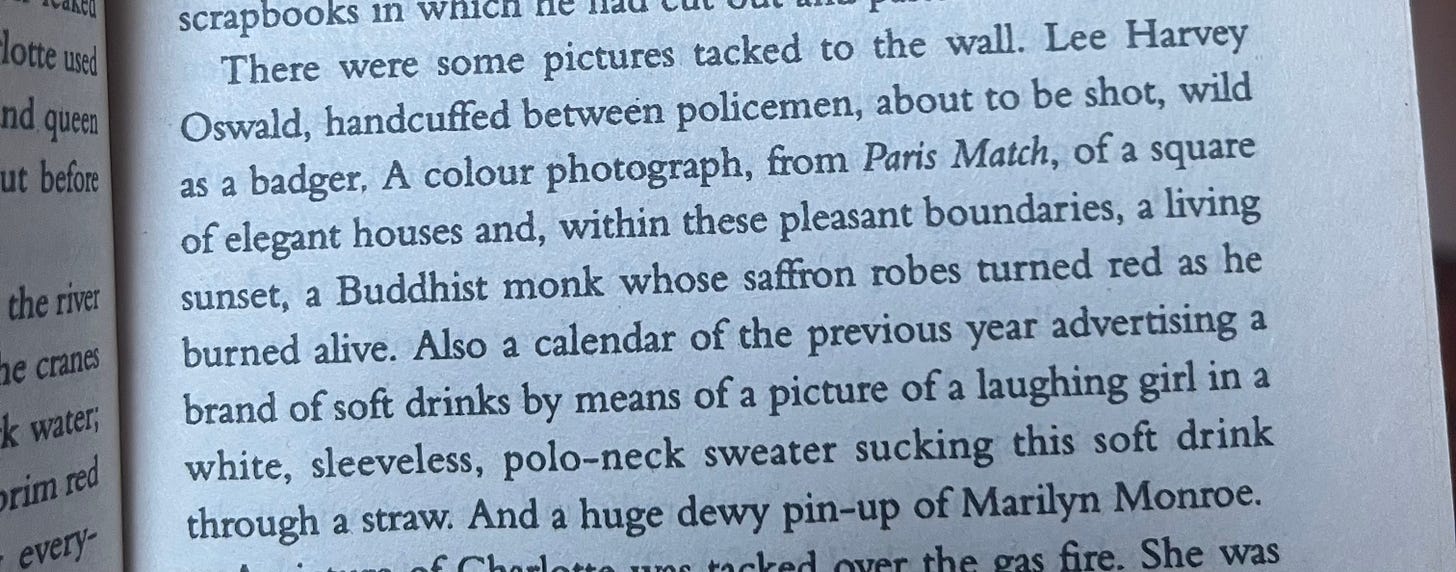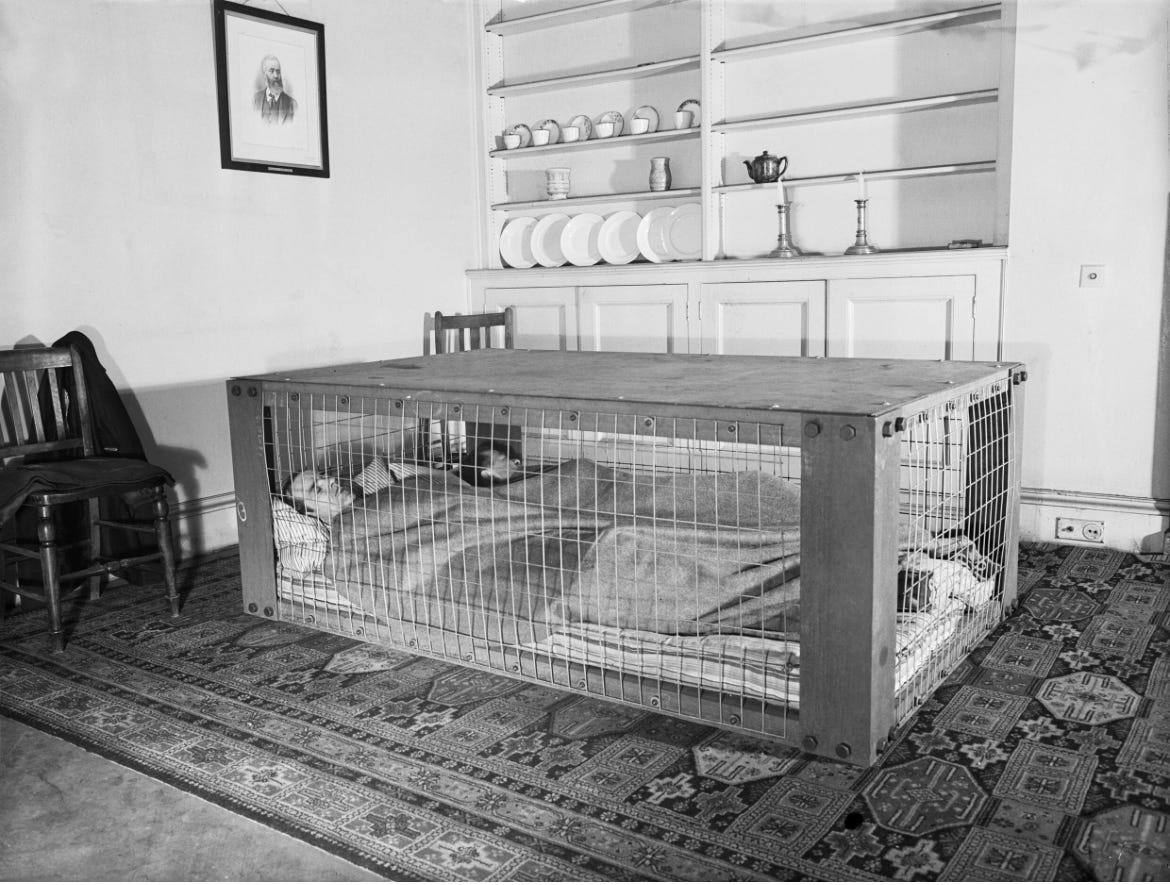I cut a picture of T.S Eliot out of a recent edition of the TLS and put it on my wall above my bed. He is drinking either a tea or coffee in it, and I like the company while having my own lonely morning coffee.
Some other photos cut out of papers I have in my room: Sylvia Plath in Cambridge accompanying a short piece by her the Telegraph published last year, a Duncan Grant self-portrait in colour, not cut out by me, but someone else and found folded up in a secondhand book.
This habit was more obsessive and grandiose when I was an adolescent, when more print culture existed and like many youngsters I had one of those bedroom collages which tries to make sense of the world and which Angela Carter perfectly captures in her novel Several Perceptions published in 1968.
When I think of all the pictures on my phone, eternally dependent on energy to exist, I imagine they have thin, sinister white roots.
In Virginia Woolf’s Craftmenship she says ‘Only after the writer is dead do his words to some extent, become disinfected, purified of the accidents of the living body’ which I quite like, especially in regards to someone like Thomas Mann, but the idea of T.S Eliot’s presence, and photos of him, have a strange power, like icons, separated from biographical facts like his marriage to a much younger woman, which I have ‘disinfected’ him of , the image of him becoming fully one with his work, the spectre of the man with the little round glasses and signet ring its own sort of poem. Muriel Spark during her Eliot inspired conversion to Christianity, and while living off diet pills, thought he was sending her secret messages in his plays, poems and in random crosswords. In The Secret History, the hero Henry, with his little round spectacles, his Missouri background and rough skin, is a portrait of Eliot, visually and accent wise. Is this bizarre obsession something only literary women share?
A friend bought me the new Collected Prose of T. S Eliot (which was the reason for the picture being in the tls). It is a juicy mustard colour and has just the things I want, like what Eliot thought of Stravinsky’s music.
I have been reading Muriel Spark’s short stories. The House of the Famous Poet” is so good and bizarre I’ve never read a story like it. It is T.S Eliot haunted. A woman moving from Edinburgh to London during the Blitz (as Spark did, which says a lot about the charm of Edinburgh ha) is offered a bed for the night by a girl she meets on the train, a caretaker of a famous poet’s house. The woman rummages through the poets books and papers, as she is obsessed with his work, though he isn’t there, only a disembodied presence. The house has a morrison shelter in it, a kind of creepy cage for people to sleep in during the Blitz to protect from falling debris, but was also used as a table. It is hazy, dreamlike, and captures some of the surreal feeling of living through such a time.
A few weeks ago, the TLS also printed some newly discovered Virginia Woolf poems written for her niece and nephew, and it made me think of this great Angela Carter essay in the Literary Review on a previous unearthing of a Woolf work.
On Wednesday I rewatched The Draughtsman’s Contract, made 42 years ago in 1982, with some friends. We had all heard of the movie via the Michael Nyman soundtrack, either recommended by other friends or heard on the BBC. You can watch it on BFI( Sadly, my favourite Peter Greenaway film,Drowning by Numbers is not available on BFI at the moment for some reason and nowhere else on the bloody useless internet either) . Every scene is like a painting, the plot is obscure, the wigs magnificient. The film was funded by the BFI and BBC and it is perhaps hard to imagine, in our era of demanding art be social work, such a delicious film being funded. The most uplifting and pleasurable thing is walking through a park listening to ‘The Disposition Of The Linen’ from it . We need to believe in the longevity of art, and that art can be affirming without engaging in issues of mental health or whatever in a direct, lecturing, buzzy way, but simply by existing.






Have you read the Groucho Marx - TS Eliot letters? They are really good. Love Greenaway - - I think MUBI had a lot of them recently but no more alas
The Draughtsman's Contract is such a bizarre film. Seen it several times and I'm never sure whether I actually like it, or whether its appeal is its music and painterliness. But you're right, it probably wouldn't be made now, and I'm glad it exists!
You've whetted my appetite for Muriel Spark's short stories. Adding to my Kindle.